TRUMP/RUSSIA, or RussiaGate, is now enormously complex. It’s helpful to think of it as a sort of three-tiered layer cake, with each tier representing a distinct hypothesis:
- Tier 1: Russia “hacked the election.”
- Tier 2: the Trump campaign colluded with the Russians to help their candidate prevail.
- Tier 3: a quid pro quo deal was brokered in which Trump agreed to lift sanctions and soften the US stance on NATO in exchange for financial considerations.
Tier 1 is beyond dispute.
The circumstantial evidence for Tier 2, if not yet damning, is nonetheless compelling enough to have warranted a secret investigation by the FBI.
The string of coincidences attached to Tier 3 , including key information in the Christopher Steele intelligence reports pertaining especially to the Rosneft deal, make this conclusion more likely than not, although no “smoking gun” has yet emerged.
Let’s look at them one by one:
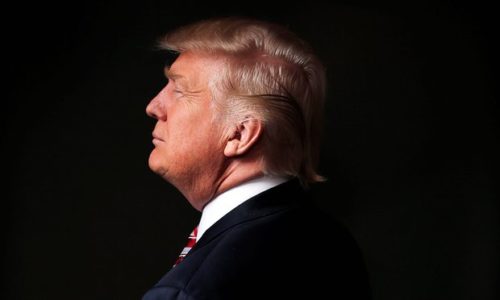
Tier 1: Russia “hacked the election.”
“Hacking the election” is shorthand for a cyber blitzkrieg by hacking operatives working under the auspices of Russian intelligence to influence the U.S. election to the detriment of Hillary Clinton, whom Vladimir Putin did not want to win.
It is the consensus of the 17 agencies that comprise the U.S. Intelligence Community (IC) that Tier 1 took place, and this was known well before Election Day. All Democrats and most Republicans now support the IC’s conclusion. Only fringe alt-right figures trumpet the “Deep State coup” conspiracy.
The Trumpian response to this charge is that there is no evidence of voting machines being hacked, nor is there reason to suspect election rigging of any kind. This is quite true, but it is deflection. There are subtler, and easier, ways to influence an election than to tamper with voting machines.
First, while I’ve read theories suggesting otherwise, the IC announced that Russia was behind the hack of the DNC. Those emails were released by Wikileaks on July 22. Whether or not Julian Assange procured the emails through an intermediary does not change the fact that those leaks, which hampered the Clinton campaign all summer, were a Russian action.
Second, and more ominously, the Russians marshaled an army of “bots,” fake Twitter users and dummy Facebook pages, designed to disseminate deza, or disinformation. This deza aligned so well with the mendacious narratives already being spread by Breitbart, InfoWars, and, to a lesser degree, Fox News, that it was astonishingly simple to circulate this Moscow-generated “fake news.” The Russians targeted these deza actions in swing states like Michigan, Wisconsin, and Pennsylvania—states whose narrow margin of victory ultimately won Trump an election. Did that have an influence on the election? Of course, although it’s difficult to quantify.
It is beyond the pale for any patriotic American to oppose an open investigation into what some have called an act of war by Russia. Even the staunchest Trump supporter should be concerned that a foreign adversary was able to sway an election in this way. That Trump and his inner circle continue to dissemble, obfuscate, and deride Tier 1 as “FAKE NEWS” suggests that…
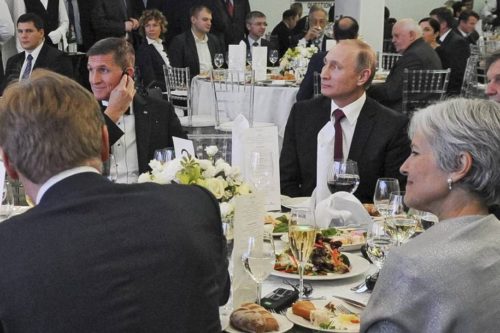
Tier 2: the Trump campaign colluded with the Russians to help their candidate prevail.
Paul Manafort, who was the CHAIRMAN OF THE TRUMP CAMPAIGN, resigned on August 18, after his crooked dealings with pro-Russian Ukrainian politicians became known. Since then, his list of alleged crimes has expanded into quite the rap sheet, and his daughters’ text messages paint a not very nice portrait of their old man (read: he has blood on his hands, and that’s not a metaphor). Again, this is the guy who was IN CHARGE OF THE CAMPAIGN.
Mike Flynn was basically a foreign agent, of either Turkey or Russia or maybe both, all throughout the campaign and WHILE HE WAS NATIONAL SECURITY ADVISER.
These are two gentlemen who were in the innermost of inner Trump circles. And they were BEING PAID BY RUSSIA AT THE TIME.
This alone should warrant an investigation. But conspirators like Jason “iPhone” Chaffetz, who grilled Hillary on Benghazi for purely political purposes whenever the opportunity presented itself, remain unconvinced. And it’s not just this alone. Far from.
Carter Page, so prominently mentioned in the Steele dossier, has denied nefarious involvement with Moscow, but stories keep breaking about his Russia ties, and he looks so guilty on the talk shows that I almost feel bad for him.
Page was brought into the campaign by Jeff Sessions, who lied under oath rather than reveal his clandestine meetings with the Russian ambassador. His subsequent walk-backs of this were so strange that he was forced to recuse himself from any Russia investigations taking place at the DOJ. Again: THE ATTORNEY GENERAL HAD TO RECUSE HIMSELF FROM AN FBI INVESTIGATION into, basically, treason, BECAUSE HE IS TOO CLOSE TO THE ACCUSED TO BE IMPARTIAL. This is, um, not normal.
There’s also Roger Stone, who exchanged billets doux with a known Russian hacker (or, rather, a Twitter account suspected to be an amalgam of Kremlin intelligence agents), and predicted that John Podesta would be attacked weeks before Podesta’s emails were leaked. Stone for years had a business with Manafort. Manafort lives in Trump Tower, along with a host of (other) Russian organized crime figures.
I haven’t even mentioned Jared Kushner or Michael Cohen….or, for that matter, Wilbur Ross, the billionaire cabinet member who owned a Cypriot bank where Russian money is regularly laundered.
Then there’s the emerging Big Data scandal, involving Steve Bannon and Erik Prince—he of Blackwater, Betsy DeVos, and secret meetings with Russian contacts in the Seychelles.
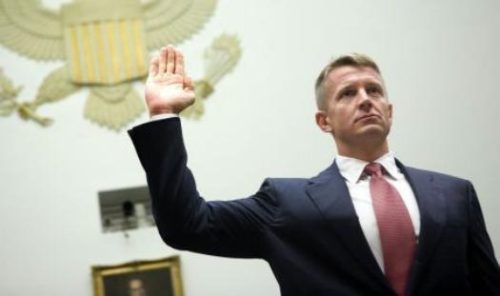
The Big Data Scandal
Two of the earliest stories filed about Trump/Russia concerned the dealings of Moscow-headquartered Alfa Bank, the largest commercial bank in Russia.
On Halloween, 2016, Franklin Foer published a curious piece in Slate suggesting that servers at Alfa Bank and the Trump Organization had been regularly communicating, for reasons unknown; the same day, the Washington Post and The Intercept ran pieces “debunking” Foer’s work, while the New York Times posted its lamentable turd of a story, “Investigating Donald Trump, FBI Sees No Clear Link to Russia.”
On November 7, Louise Mensch published a world exclusive: the FBI had obtained a FISA warrant to investigate the Trump campaign’s ties to Russia—specifically, the curious communication between servers at Trump Org and Alfa Bank.
At the time, no one had any idea why these servers would be in regular communication. But a report by a citizen journalist known as Tea Pain solves this mystery: those servers, along with a server from Spectrum Health, were running a “stealth data machine,” funneling data to Russian intelligence to inform its hacking of the election (Tier 1). (Said stealth data machine was reported by Forbes, in a piece about the genius of Jared Kushner, so it’s not like the Trumps would deny it exists.)
Per Tea Pain, Spectrum—which is owned by none other than Erik Prince—funneled customer data to Trump Tower, which funneled it to Alfa, which funneled it to Russian intelligence. The Spectrum data was used to supplement data mined by Cambridge Analytica, which is owned in part by Steve Bannon. And this data is how Russian intelligence was able to weaponize its fake news bots with such ruthless precision.
Again, this is an emerging story, and it may well turn out to be nothing. But Prince is a key figure in Trump/Russia. In an interview with Breitbart radio in November, he spoke at length about the Weiner laptop development, known to him via contacts at the FBI’s New York field office—the same field office Rudy Giuliani cited for his own foreknowledge of “October surprise” events. Prince also arranged a clandestine meeting with Putin surrogates in the Seychelles. He may not have been an official member of the campaign, but his, ahem, Prince are all over Trump/Russia.
If you’re playing at home, this means that Manafort, Flynn, Page, Stone, Sessions, Bannon, Prince, Kushner, Cohen, and Ross all had contact with the Russians during the campaign, or else were involved in the Big Data scandal or Russian money laundering. (Reince Preibus was not intimately involved…but the Russians hacked the RNC, too, and he was the chair of the RNC, so they certainly have something on him).
And lest you think these sort of meetings take place all the time during presidential transition periods, here’s former US ambassador to Russia Michael McFaul:
This story just gets weirder and weirder. During Obama transition in 2008 (I was his Russia advisor back then ) we met with 0 Russians. 0 https://t.co/qRkkVR80rB
— Michael McFaul (@McFaul) April 3, 2017
There’s simply too much smoke for there not to be a fire.
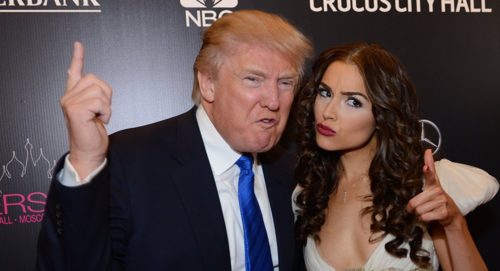
Tier 3: a quid pro quo deal was brokered in which Trump agreed to lift sanctions and soften the US stance on NATO in exchange for financial considerations.
If nothing else, Trump seems to revere Putin, and has consistently trumpeted policies more in line with Russia’s interests than our own. That seems beyond dispute.
There were an awful lot of curiously timed meetings between members of Trump’s inner circle and the Russians, particularly the ambassador, Kislyak. One such meeting—not disclosed by a soul until the press found out about it—was a cocktail party at the Mayflower Hotel back in April, on the eve of Trump’s first major foreign policy speech. Seth Abramson is more qualified to explain the details than I am:
(MEGA-THREAD) The plot to sell America's foreign policy for foreign oil _and_ steal an election in the bargain began at the Mayflower Hotel. pic.twitter.com/XkoFpmMAeJ
— Seth Abramson (@SethAbramson) March 24, 2017
There was also the meeting with pro-Russian Ukrainians, Mike Flynn, and Jared Kushner, at which the lifting of sanctions was discussed. And the meetings alleged to have taken place with various Putin surrogates and Carter Page. And the aforementioned Seychelles meeting with Erik Prince and the Russians. And the various Russian oligarchs who randomly park their planes and their yachts near Trump’s planes and yachts. And…
You get the idea.
Certainly there were plenty of avenues through which a quid pro quo deal might be negotiated.
But was a deal made?
For example, did Putin, in exchange for the sanctions being lifted, agree to give Trump commission on the sale of 19% of Rosneft, as was reported in the Steele dossier, and subsequently took place? Did he agree to forgive a nine-figure debt to a Russian bank? Or is he simply holding kompromat on Trump (i.e., the “golden shower” tape) that compels the president to do his bidding?
We don’t know for sure. No smoking gun has emerged, as the Trump camp—as well as the likes of Snowden BFF Glenn Greenwald—never tires of reminding us.
We might have a better idea if Trump released his tax returns…but Trump will not release his tax returns. The only conclusion we can draw from that is that he has something to hide.
And here we are.
Tier 1 is confirmed. Tier 2 might as well be confirmed. But neither of those tiers taint Trump personally. For him to step down, or to be impeached, Tier 3 must also be confirmed.
The FBI is taking its time with the investigation. This is frustrating, for sure. But the longer the investigation takes, the wider the net opens; the wider the net opens, the more likely that Trump himself is caught in it.
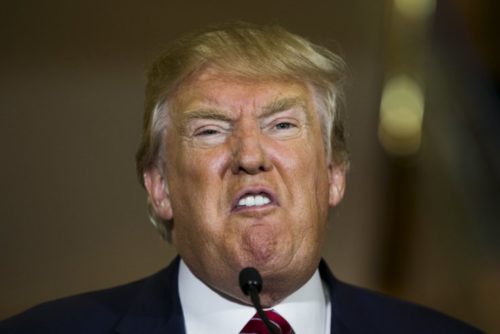
Big fish.



And all of this is just a big coincidence? I think not. It seems more like circumstantial evidence of collusion. If the FBI also finds direct evidence, they will have a case.
I think not. It seems more like circumstantial evidence of collusion. uhff
The FBI has an ongoing investigation. They have now assigned 20 case agents to a Washington office dedicated to investigating the Russian influence on our election, as well as any collusion by the Trump campaign with Russia. There are also three separate FBI field offices that are investigating this issue, other than the main office in Washington. They will investigate all of the circumstantial evidence until they find direct evidence, or until they conclude there is no direct evidence. It is a huge, sprawling investigation involving many individuals spread all over the world. It will take time, but if direct evidence is there, they will find it.